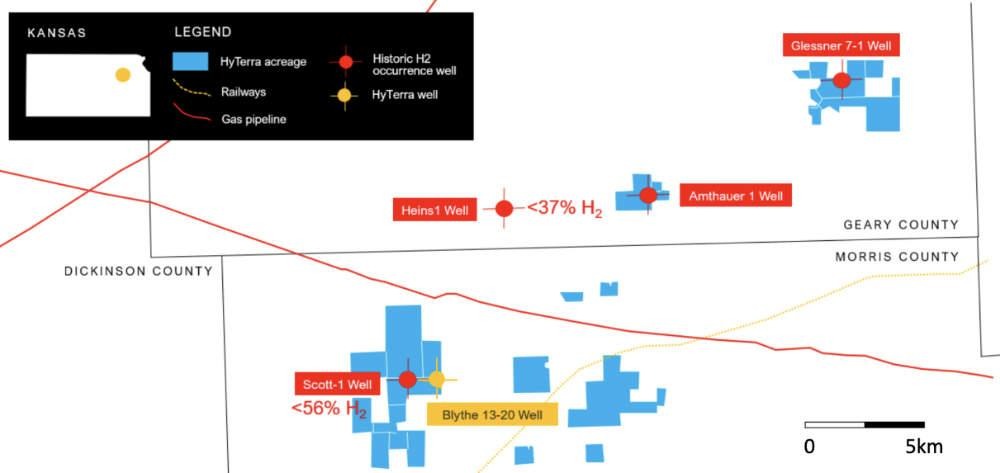The UK Strengthens Hydrogen Energy Infrastructure

The UK is known to be a major force in global hydrogen-energy production. Recent efforts across varied parts of the hydrogen sector have only reinforced this.
A hydrogen hub in Scotland and efforts to decarbonise the British glass industry show that despite the government change, The UK continue to put hydrogen energy at the forefront of their interests,
bp Aberdeen Hydrogen Hub
A joint venture between ‘bp’, (formerly British Petroleum Company) and Aberdeen City Council has announced that the agreed final investment decision for its Aberdeen Hydrogen Hub project. The project will support the region’s energy transition ambitions and its drive to become a leader in lower-carbon energy.
The imminent hub will feature a hydrogen production, storage and distribution facility, located at Hareness Road, Aberdeen. This will be powered by electricity generated at a solar farm to be installed on the former Ness landfill site.
Dr Oliver Taylor, chief executive for bp Aberdeen Hydrogen Energy Limited, commented:
“This is an exciting milestone for the project, Aberdeen, and its people. Not only does the hydrogen hub support bp and Aberdeen City Council’s shared ambition for the city’s future, it also presents a growth opportunity for the region’s supply chain and skills development.”
“This investment by the Council and bp is an important step towards the delivery of the Aberdeen Hydrogen Hub project. Aberdeen has been a leader among cities in bringing hydrogen to market for public transport and council fleet vehicles. This project is central to our vision to increase the supply and demand for hydrogen as a fuel in support of the city’s net zero vision.”
Following this decision, the joint venture plans to proceed towards the commencement of construction activities, which are expected to begin before 2025. Targeting production from 2026, once operational, the hub will have the potential to deliver up to around 300 tonnes of green hydrogen a year through the initial phase of the project.
bp Senior Vice President Europe Louise Kingham concluded: “Aberdeen City Council deserves a huge amount of credit for showing leadership as they progress their plans to deliver lower carbon energy solutions and, for bp, this is further evidence of how we are backing Britain by investing in support of today’s energy needs and those of tomorrow.”
Glass production to lower carbon emissions via hydrogen
‘Grenian Hydrogen’ is developing a project to provide a long-term supply of green hydrogen to produce low-carbon glass at Pilkington UK’s Greengate Works site in St Helens.
Pilkington UK has been manufacturing glass in St Helens for almost 200 years, supplying glass to the architectural sector for buildings and homes. Grenian will produce green hydrogen on a plot at the Greengate Works site using renewable electricity. This will reduce fossil gas used in Pilkington UK’s furnace allowing the company to continue to decarbonise it’s glass production.
Grenian Hydrogen is a joint venture between ‘Progressive Energy’ – a low-carbon energy project developer, ‘Statkraft’ – Europe’s largest generator of renewable energy; and Foresight – a leading investment manager in real assets and capital for growth. The project at Pilkington UK is the first of many across Britain that Grenian will submit for planning permission.
Grenian CEO, Adam Baddeley commented, “The Grenian team has been working closely with Pilkington UK to get to a point at which we can present our plans to the St Helens community. The project marks an exciting point in Liverpool City Region’s journey to create sustainable energy solutions – with St Helens leading the way.
“The public consultation event will provide an opportunity to learn how green hydrogen is created and to find out more about how it will be used at the Greengate Works site.
“Our plans to produce green hydrogen on site will provide a blueprint for the decarbonisation of flat glass manufacturing all over the world. Using zero carbon hydrogen to fuel our production will enable us to permanently remove 15,000 tonnes of carbon emissions from our production each year, representing a major step forward in meeting our Science Based Targets Initiative (SBTi) certified targets for achieving carbon neutrality.
Securing hydrogen supply will also help us to deliver our visions by transforming our processes and by delivering the low carbon building products that will define the pace of decarbonisation in the built environment.”
Byline By Sonny Riddell

